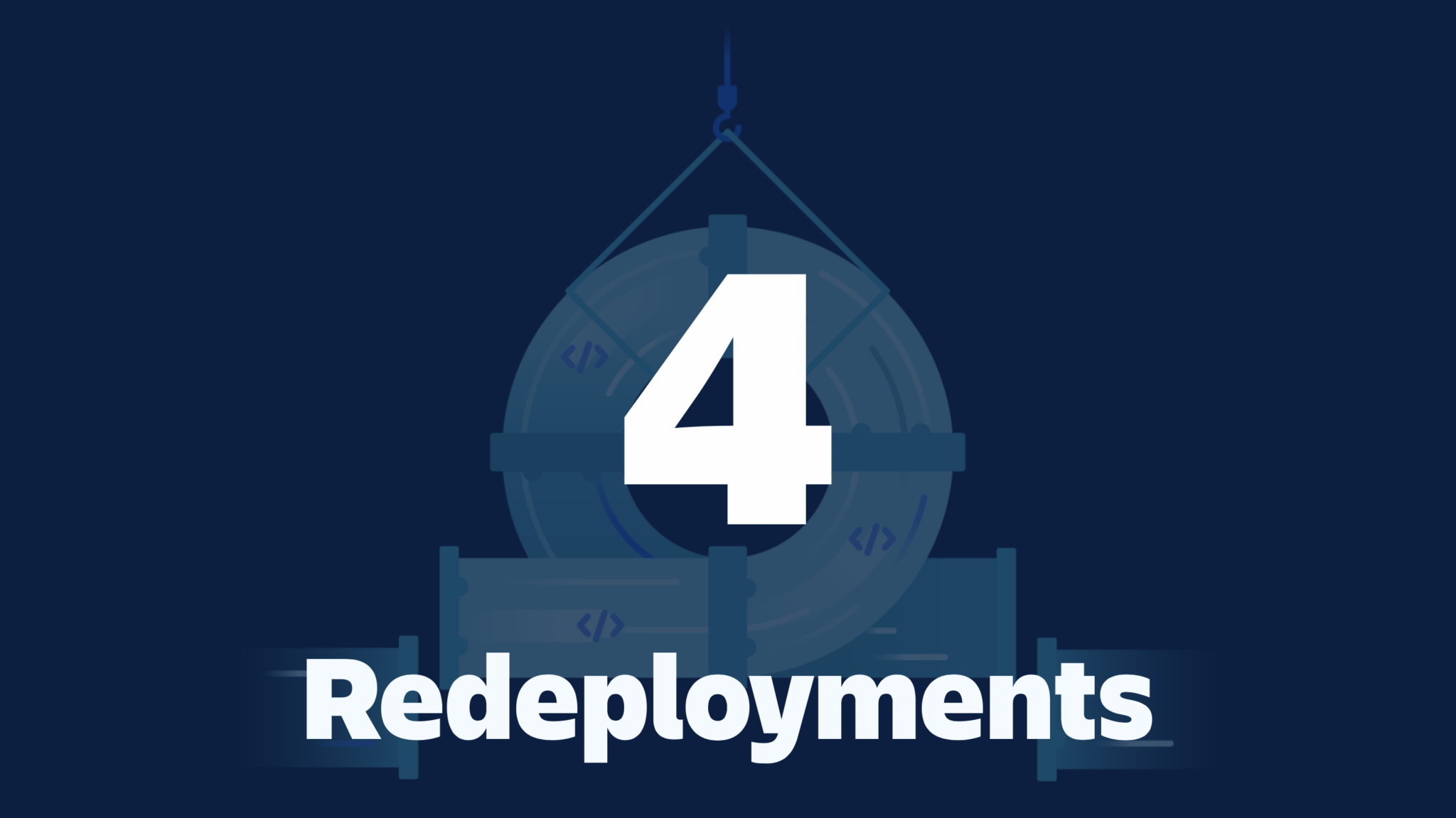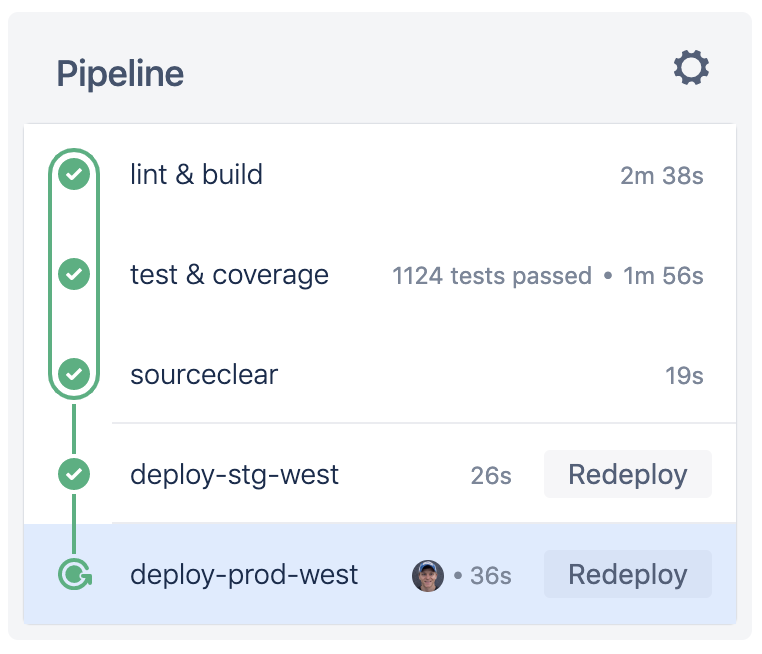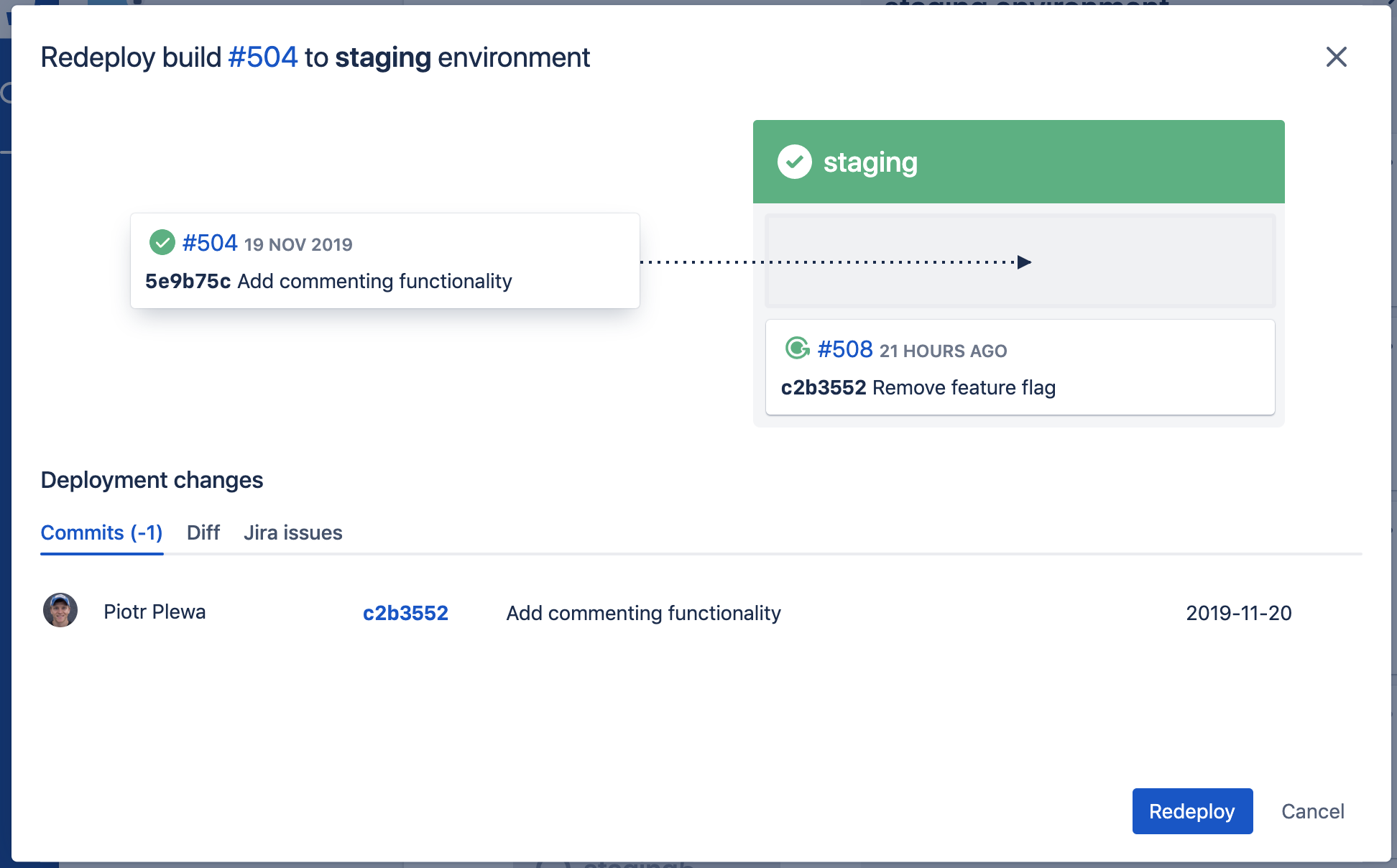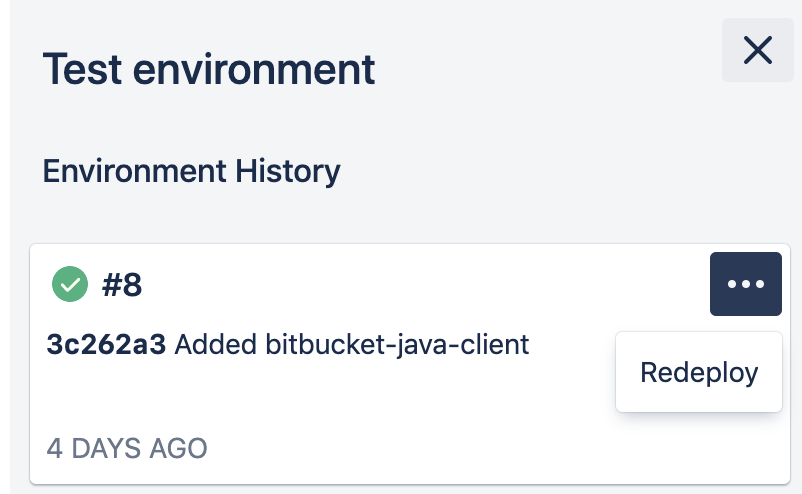
The ability to roll back a failed release is critical for teams practicing continuous delivery. It reduces the mean time to recovery and minimizes the impact outages or degraded performance can have on users. Where it was previously a time consuming process to roll back a failed release in Bitbucket Pipelines, today we’re proud to announce redeployment support which lets you restore the last successful deployment to a given environment in just a few clicks.

With redeployments in Bitbucket Pipelines it’s simple to fix a broken environment and see what changes are being reverted. Redeployments are performed by rerunning successful deployment steps, which are indicated with a new icon in the pipeline UI.
Improved visibility into redeployments
When rolling back a release, the deployment preview screen shows the commits, code and Jira issues that are affected, giving you visibility into everything being reverted.

Rolling back deployments
It’s easy to get started with redeployments. For the Redeploy button to be enabled:
- The initial deployment step in the pipeline must be completed successfully
- The deployment permissions must allow the step to be redeployed
- Artifacts can’t be expired
To roll back a deployment step:
- Choose the deployment which you want to redeploy and click the Redeploy button.
- In the Redeploy screen, review the changes and click Redeploy.
Alternatively, you can click Redeploy in the Deployments dashboard:

Get started today
Redeployments in Bitbucket Pipelines provides an easy way to roll back a failed release, reducing the time taken to fix a broken environment and providing greater visibility into what changes are being made. Try it out yourself and let us know what you think!